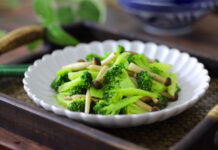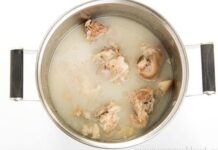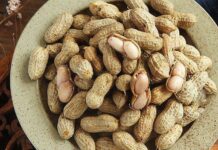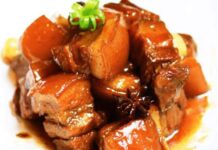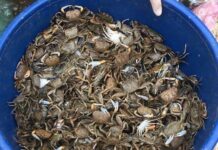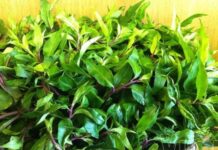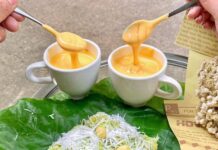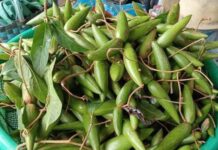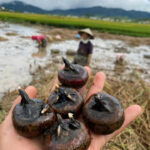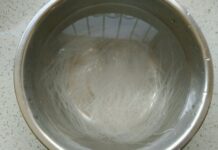The freshly harvested coconut stems are creamy white, crisp, and sweet. In the Mekong Delta region of Vietnam, they are used in a variety of rustic dishes such as sour soup, braised in soy sauce, or stir-fried with shrimp.
While raw coconut stems are delicious, consuming too much can lead to a queasy, nauseous feeling.
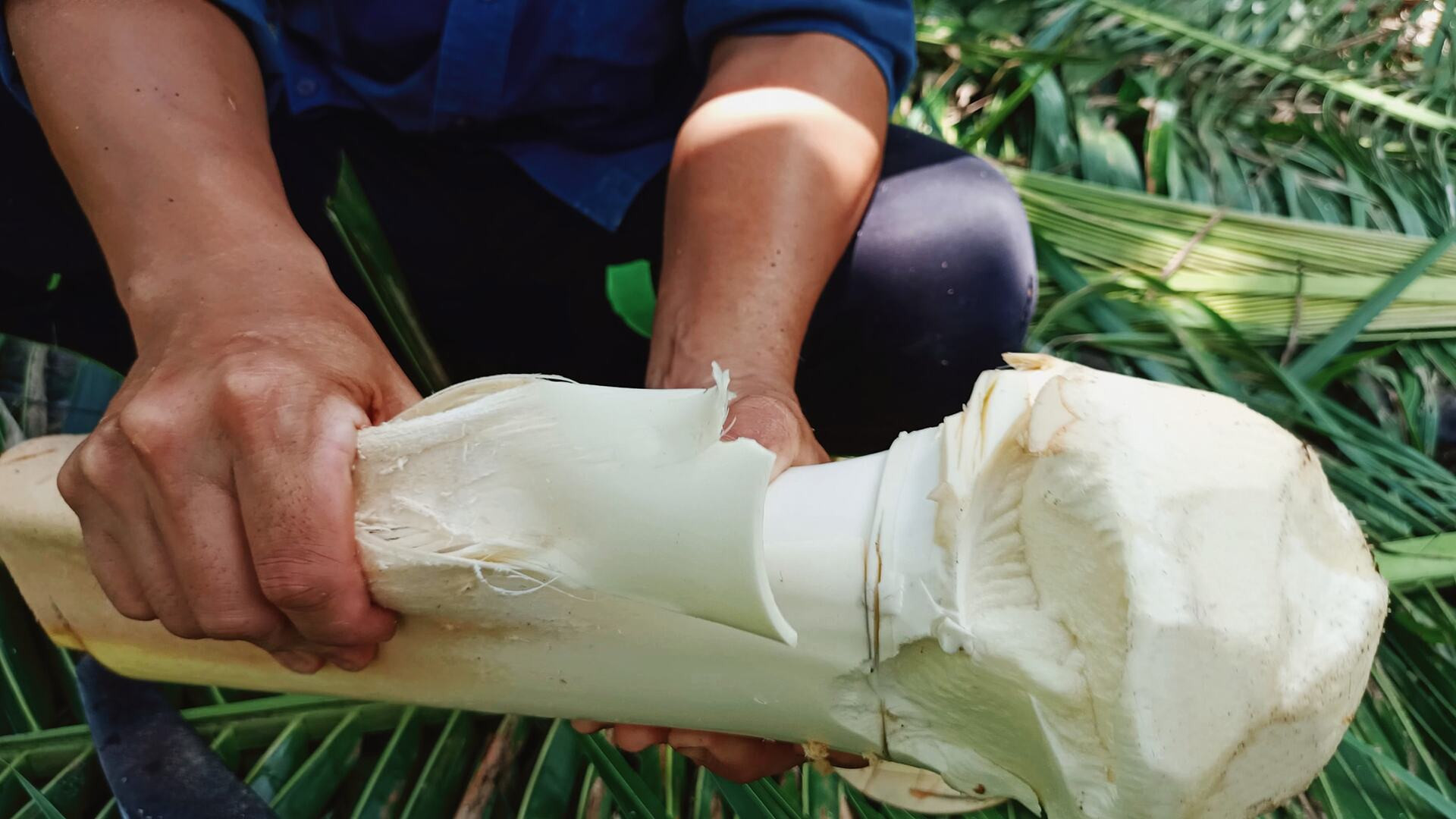
Coconut stems are a beloved delicacy among the locals in the Mekong Delta. Photo: Phuong Lua
Coconut stems are considered a luxurious delicacy in Ben Tre and other provinces in the Mekong Delta region. Traditionally, to obtain a few kilograms of these creamy white stems, farmers had to fell mature coconut trees that were several years old and towered several meters high.
Usually, harvesters look for coconut stems in trees that are at least two years old, have “aged,” and are no longer productive in terms of fruit yield, or in trees that have been damaged by strong winds or storms.
The harvester climbs up to cut the leaves and coconuts before felling the tree. The remaining parts of the tree, including the leaves and trunk, are sold for roofing, handicrafts, and other purposes, ensuring that nothing goes to waste.
Nowadays, farmers in the Mekong Delta have started cultivating coconut trees specifically for harvesting these coveted stems. These plantations have a two-year crop cycle, a stable market, and provide a good source of income.
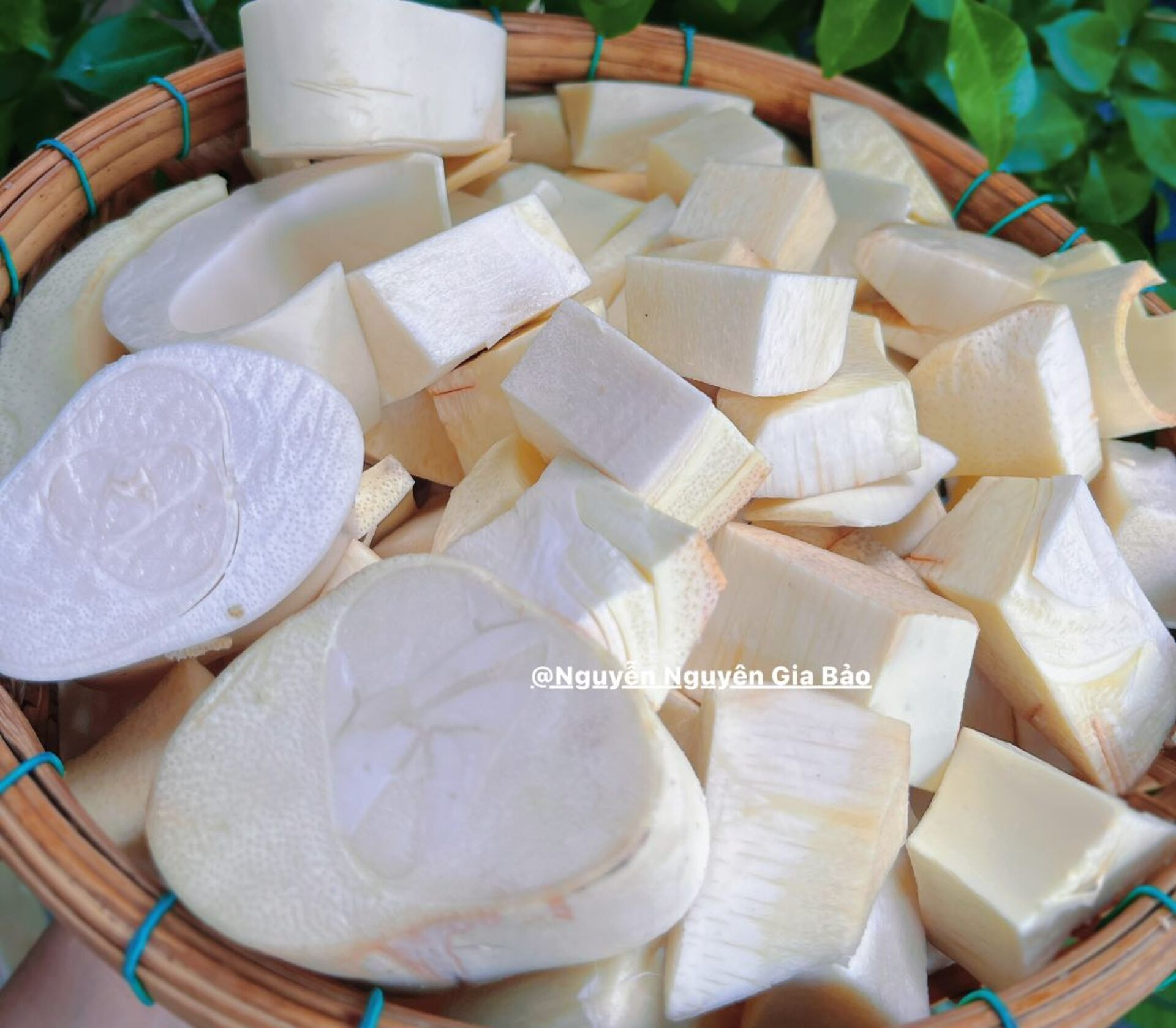
The creamy white coconut stems can be prepared in a variety of delicious ways. Photo: Gia Bao
Coconut stems are not only popular for their delicious taste but also for their high fiber content, which aids digestion, and their nutritional profile, including essential minerals such as iron, magnesium, and zinc.
At collection and processing centers, the stems are peeled, rinsed, and immediately vacuum-sealed to maintain their creamy white color and enable transportation over long distances.
Coconut stems are currently sold in major cities across Vietnam for 80,000-120,000 VND per kilogram (approximately $3.4-$5.2). In Hanoi, the price can go up to 150,000 VND per kilogram (approximately $6.5).
Local farmers share that to maintain the crispness and creamy white color of the stems, they often cut them into sections or slice them thinly, soaking them in ice water with a touch of fresh lemon juice and salt.
“In the past, coconut stems were only obtained when a tree fell or was infested with pests,” shared Nguyen Nguyen Gia Bao (27 years old, from Ben Tre, currently living in Dong Nai). “This delicacy, though simple and rustic, is not always available for enjoyment.”

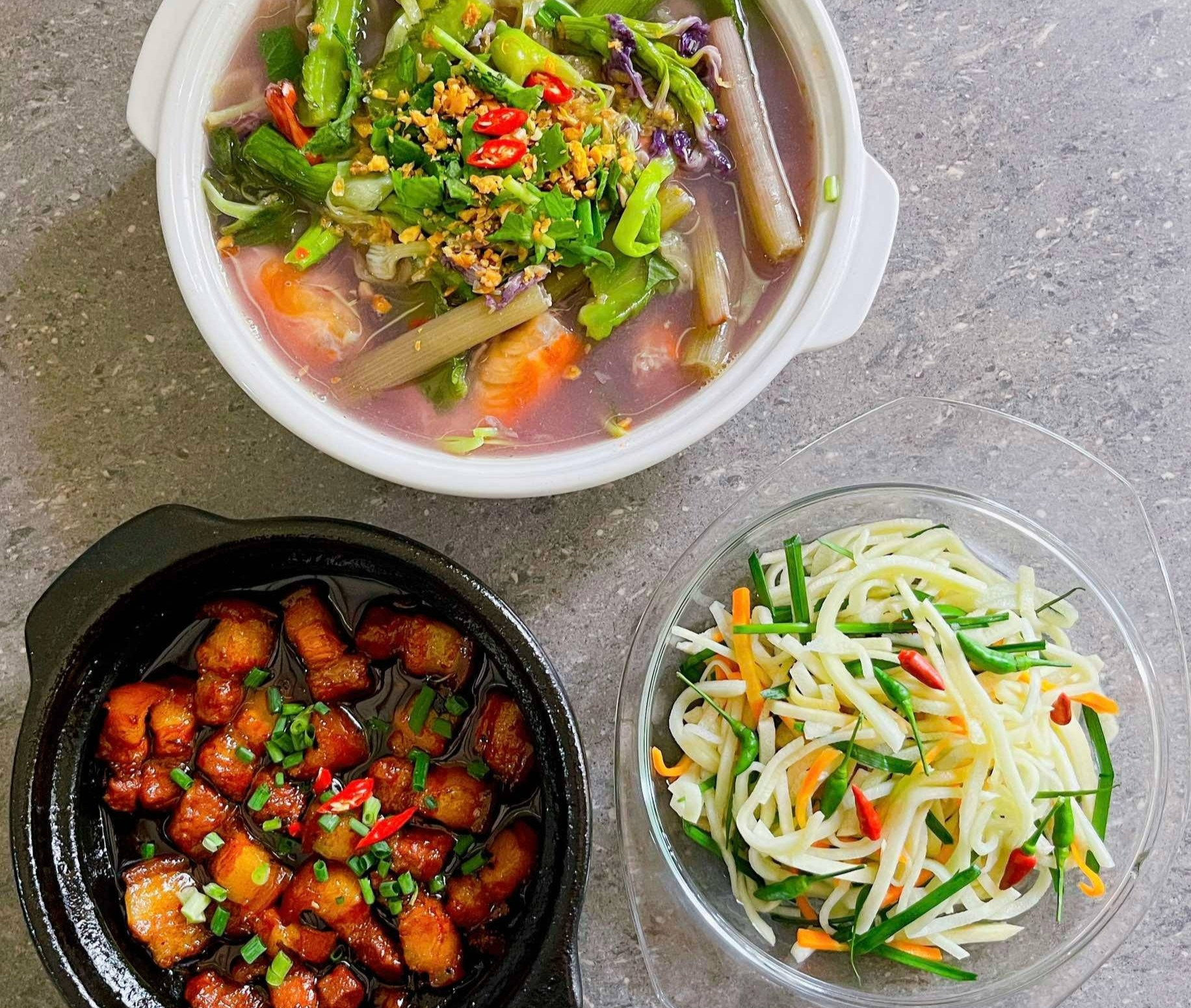
Bao’s family often prepares coconut stems in vegan braised dishes, pickled them, or uses them in savory pancakes. Photo: Gia Bao
According to Bao, coconut stem savory pancakes are a traditional dish in Ben Tre during the Dragon Boat Festival (the 5th day of the 5th lunar month).
“When it comes to savory pancakes in the Mekong Delta, people often think of the traditional shrimp, pork, and bean sprout filling. However, in my hometown of Ben Tre, we like to use minced duck meat, shrimp, and coconut stems as the filling,” Bao shared.
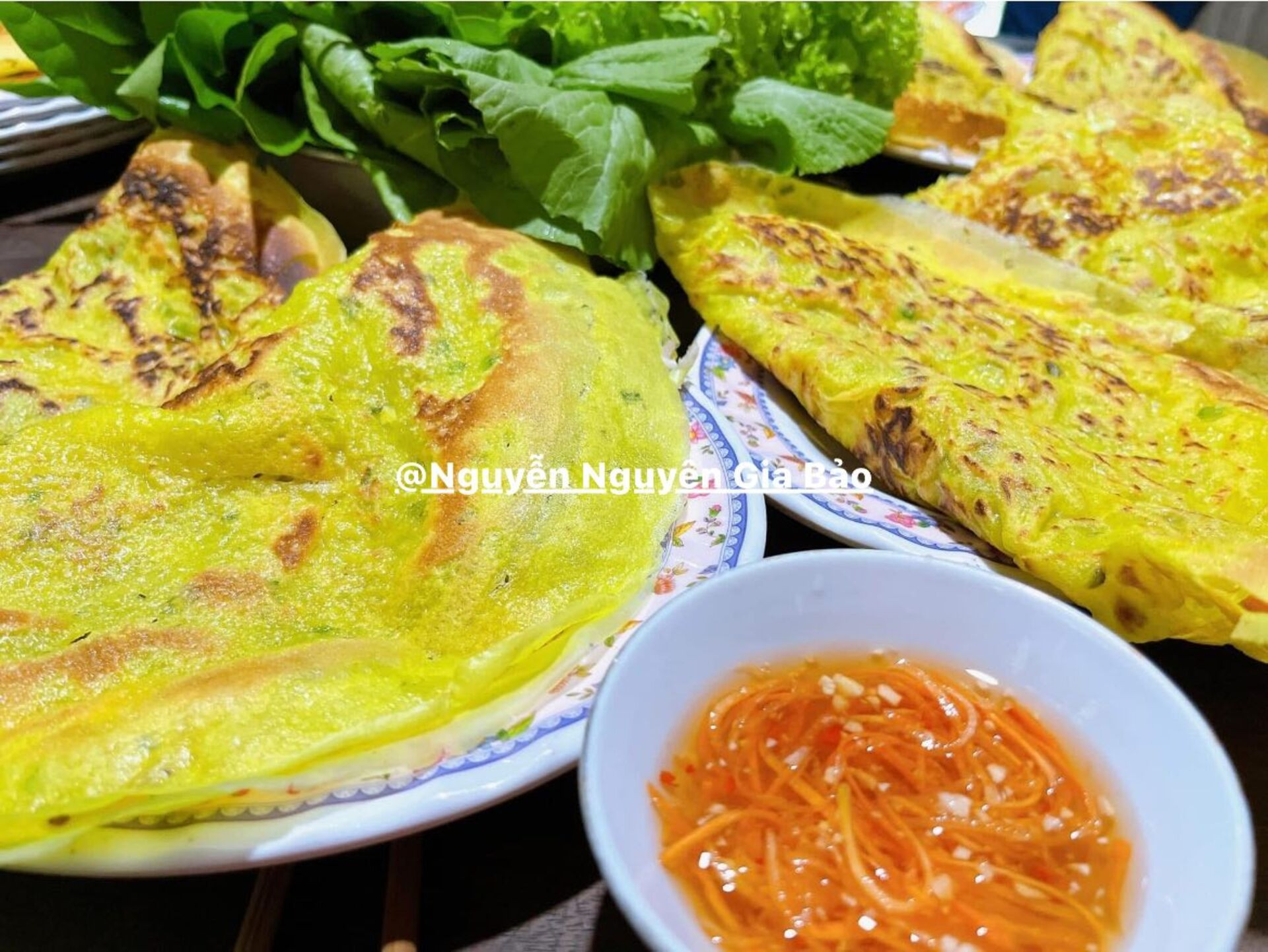

The savory pancakes with coconut stems are a delicious treat. Photo: Gia Bao
The batter for these savory pancakes is made with coconut milk, giving it a rich and creamy flavor. A pinch of turmeric is added, resulting in a golden-hued, thin, and crispy crust. The coconut stems are shredded into thin strands and briefly stir-fried with minced duck meat (deboned), fresh shrimp, and seasonings.
The shrimp are first sautéed in a hot pan with oil, followed by the addition of the batter, creating a sizzling sound and ensuring that the shrimp adhere to the crust. Once the batter is partially cooked, the coconut stem mixture is added.
“The unique feature that defines the soul of Mekong Delta savory pancakes is the diverse and fresh selection of herbs served alongside,” Bao shared. “People in the Mekong Delta don’t just consider savory pancakes as a main course but also enjoy them with a variety of fresh herbs such as green mustard, pennywort, star gooseberry leaves, mango leaves, bauhinia leaves, and more. The large, crispy pancake is then dipped in a spicy, sour, and sweet fish sauce.”
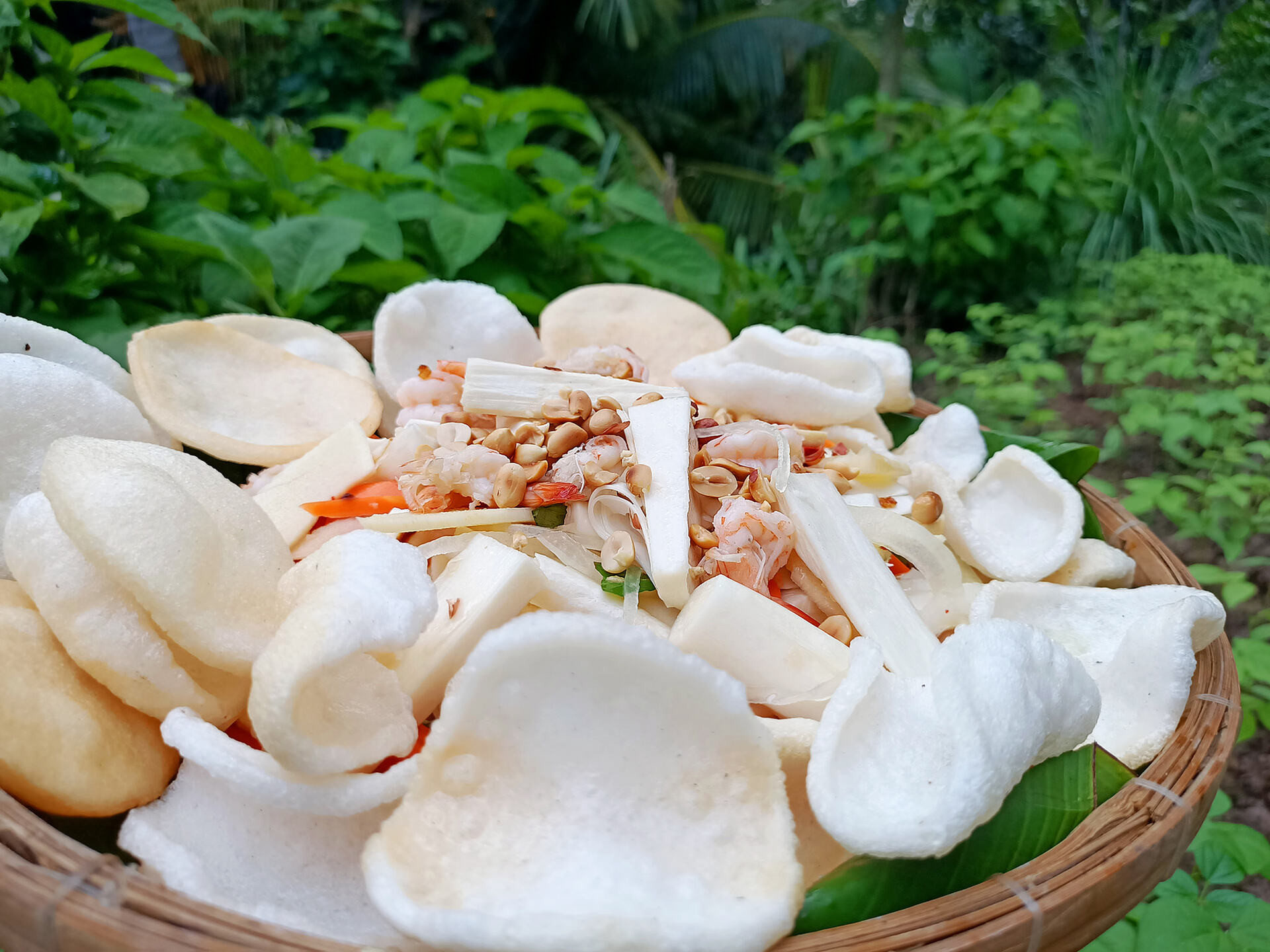
Stir-fried coconut stems with garlic is a simple yet delicious dish. Photo: Thuong Giang
Coconut stem salad is a renowned specialty in the Mekong Delta, featured in many restaurants to delight visitors from afar. This dish has a sweet and sour flavor profile, a crunchy texture, and a refreshing taste with minimal fat.
The coconut stems are shredded into thin strands and mixed with other ingredients such as shelled shrimp, pork belly, thinly sliced pork ears, herbs like Vietnamese coriander, onion, and a sweet and sour fish sauce dressing. The addition of roasted peanuts and crispy shrimp crackers elevates this dish further.

Coconut stem salad has become a popular menu item in restaurants and eateries, showcasing the unique flavors of the Mekong Delta. Photo: Phuong Lua
Coconut stems and shrimp can also be combined in a stir-fry. Sauté the shrimp in a hot pan with garlic, then add carrots, coconut stems, broth, and seasonings like soy sauce, oyster sauce, sugar, and herbs. A dash of pepper and soy-chili sauce adds a flavorful kick to this dish, making it a perfect side for rice.
The Pink Trumpet Tree: A Majestic Spectacle in the Heart of the Mekong Delta
The stunning pink trumpet tree-lined road in Soc Trang, located in the Chau Thanh District’s administrative center, has earned the title of “the most beautiful in the Mekong Delta.” This picturesque site attracts hundreds of visitors daily, captivated by its vibrant display reminiscent of cold-weather cherry blossoms.
The Breathtaking Natural Rock Park in Ninh Thuan: A Majestic Wonder Crafted by Mother Nature Herself
The Ninh Thuan National Park has been recognized by UNESCO as a World Biosphere Reserve. This diverse landscape, boasting forests, seas, mountains, and a semi-desert, attracts tourists from far and wide. The majestic mountains, in particular, captivate visitors with their Mediterranean-esque vistas.











